Nutrition for the Student Brain: The Ultimate Practical Back-to-School Guide
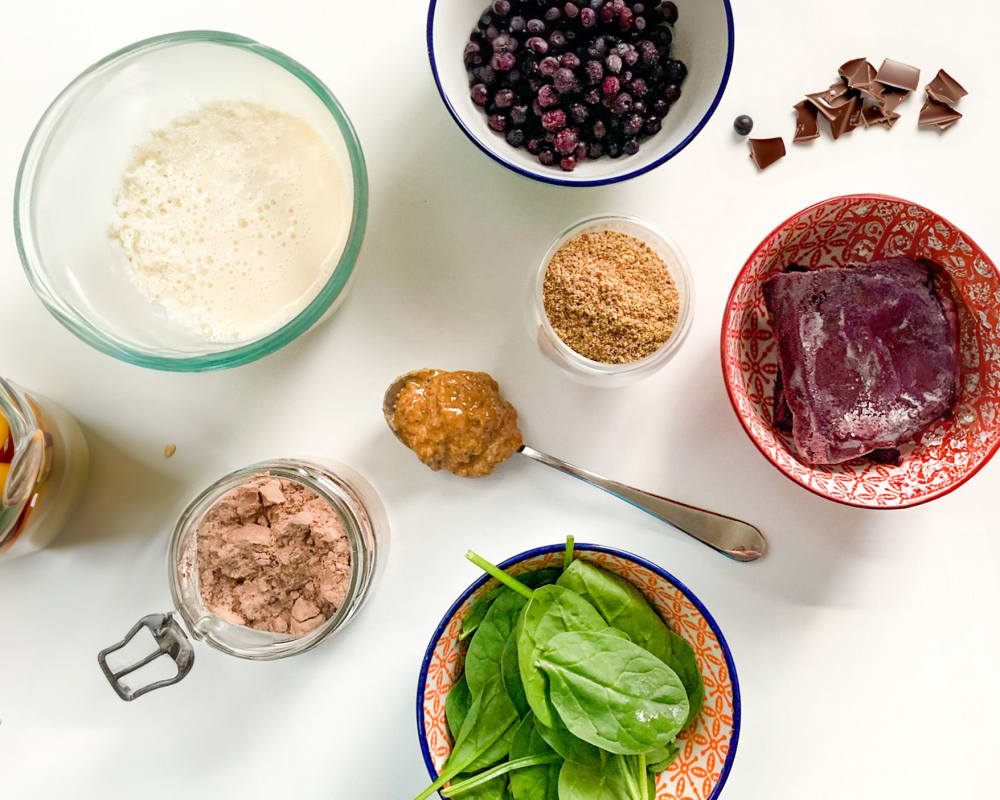
Nutrition for the Student Brain: The Ultimate Practical Back-to-School Guide
Learn how the right nutrition can boost students' brainpower for a successful school year.
We take for granted that sports and physical activity require fuel. Sitting in class, by comparison, seems passive. But make no mistake: School is undeniably taxing. The brain is the most fuel-hungry organ in the body, and learning is a significant drain on our metabolic resources.
The human brain, a massive cluster of high-performance neurons, is naturally hungry—ravenous, in fact—and the more you use it, the more it wants to eat. Add to that the stress of new and changing social situations, and it's no wonder it can all be a lot to handle. The good news is that giving the student brain the support it deserves can make all the difference in the world.
While study habits, healthy exercise and sleep routines are often (rightly) emphasized, nutrition is equally critical in supporting cognitive function and ensuring students can perform their best. In addition to covering the foundational essentials of a healthy diet, there are proven 'brain foods' that can improve concentration, focus, memory, cognition, and recall.
In other words, some foods really can make you a better learner overall! This guide offers practical and scientifically proven dietary tips, from solid foundations to fine details, to help students fuel their brains for academic success.
Breakfast is the most important meal of the day
Starting the day with a nutritious breakfast is essential for maintaining focus and energy levels throughout the morning. Studies have shown that balanced breakfasts high in protein lead to better concentration. And high carb breakfasts Those who skip breakfast altogether get worse grades- especially in math. And those who have sugary, high-carb breakfasts can find paying attention an uphill battle.
20 High-Protein Breakfasts to Power Your Morning

The 3 Pillars of a Brain-Friendly Breakfast:
Protein: Eggs, yogurt, or a protein smoothie can help keep hunger at bay and support brain function. Protein-rich foods are vital for producing neurotransmitters and facilitating communication between brain cells. They also balance the internal combustion of carbohydrates, making for a more balanced and stable burn of cellular fuel. This translates directly to balanced and stable brain function!
Healthy Fats: Adding a source of healthy fat, such as eggs, fish, avocado, nuts, or seeds, can further enhance cognitive function by supporting brain cell structure and function. The brain is about two-thirds fat, needs fat, and loves it. Studies show that egg yolks and fatty fish are particularly powerful at boosting students' memory, cognition, and test scores.
Slow carbs: Fibre-rich, slow-burning whole grains like oatmeal, fruit, beans or other legumes provide a steady release of energy for the mind, helping to prevent a mid-morning crash.
Omega-3s are literally essential
Omega-3 fatty acids are critical for mental and cognitive health, and they're called essential fatty acids because our bodies can't make them and need to get them from food. However, a specific type of omega 3 called DHA (docosahexaenoic acid) is particularly crucial. It actually makes up a fifth of our entire brain's physical composition.
The availability of DHA is tremendously important for fetal brain development and continues to affect brain health into old age. In fact, this remarkable fatty acid played a major role in the development of our species, helping our human brains evolve in the first place. As a structural component of the brain and retina, DHA intake can make a big difference in day-to-day cognitive function and visual processing.
Eggs: The Nutritional Microcosm
[Organic Eggs, Milk, Meat, and Fish: Are You Getting What You Pay For?](Organic Eggs, Milk, Meat, and Fish: Are You Getting What You Pay For?)
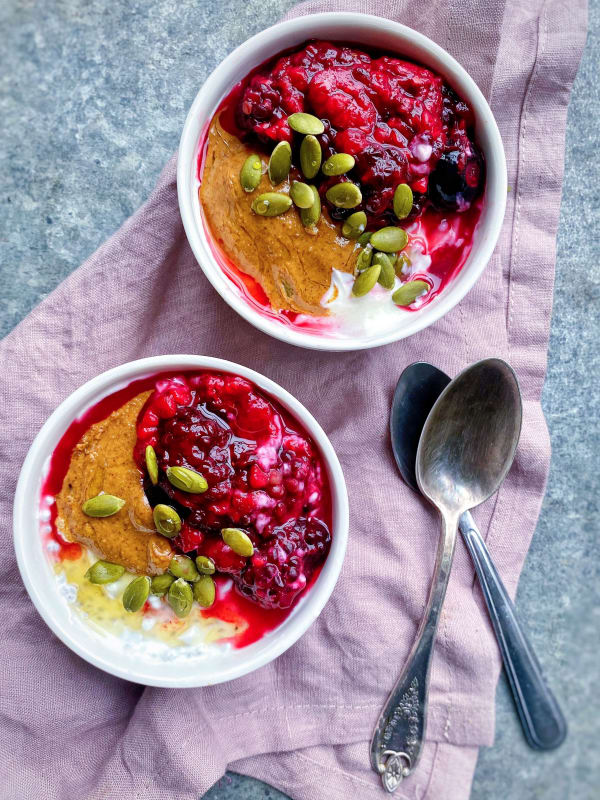
How to Get Them:
Fatty Fish: Salmon, mackerel, sardines, and trout are among the best sources of omega-3s, including a generous supply of the master brain fat DHA.
Eggs: After fish, eggs are a great source of omega-3 fats. Since the omega 3 content of the egg is dependent on the hen's feed, amounts are generally higher in organic eggs and those from flaxseed-fed chickens. Since they also contain high-quality protein and awesome brain nutrients like choline, lutein, and B12, eggs are an ideal student food for breakfast or any time of day.
Plant-Based Options: For students who are vegetarian or vegan, flaxseeds, chia seeds, and walnuts are excellent plant-based sources of omega-3s, though they provide ALA (alpha-linolenic acid), which the body converts to DHA. Remember, though, that DHA conversion rates are very low, and preformed DHA (as found in animal sources) is a much more potent brain booster. For this reason, supplemental algae oil is likely the best bet for plant-based learners.
Antioxidant-rich foods for upgrading brain signalling
Oxidative stress can impair cognitive function and is linked to the development of neurodegenerative diseases. Antioxidants help protect brain cells from damage caused by free radicals, promoting better brain health. But they don't just protect the brain from future damage; antioxidants help the brain work more effectively, improving signalling between nerve cells and essentially helping different parts of the brain communicate with one another.
7 Astounding Berries and the Things You Didn't Know About Them
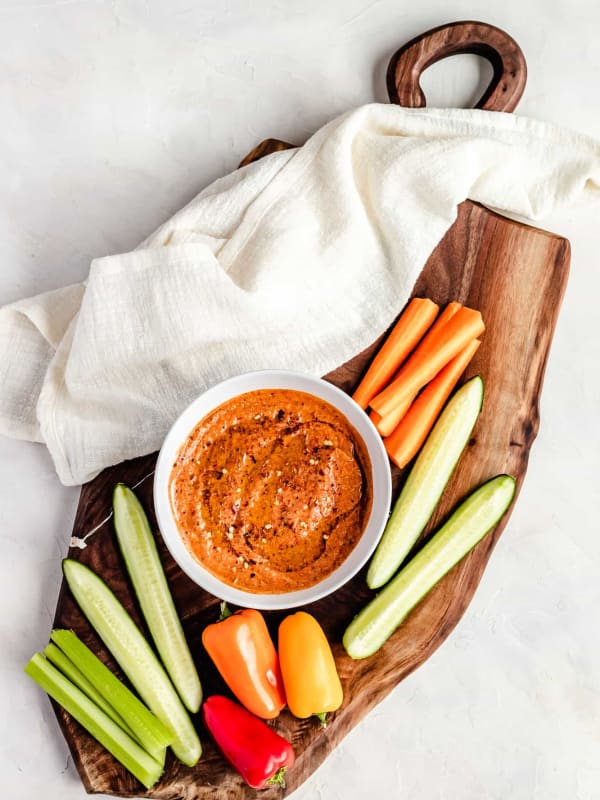
What to Include:
Berries: Dark berries, like blueberries, raspberries, strawberries, and blackberries, are packed with brain-loving antioxidants called anthocyanins. Eating a mix of dark berries has been shown to improve cognition and test performance for six hours after consumption! Even blueberries alone can tangibly enhance short and long-term memory.
Cruciferous and Leafy Greens: Spinach, kale, cabbage, and other greens are rich in vitamins K, C and E, as well as other powerful antioxidants that support memory and learning while preventing damage to neurons.
Colourful Veggies: Red, green, yellow, and orange veggies are rich in antioxidants called carotenoids. These intriguing compounds, including zeaxanthin and lutein, may improve reaction time, test performance, and memory. From bell peppers to carrots and broccoli, your brain- and your grades- will thank you for eating the rainbow.
Dark Chocolate: It's true; high-quality chocolate is an actual brain food. This is because cacao provides flavonoids, which increase blood flow to the brain and sharpen focus. They even help to sustain attention and reduce mental fatigue.
Hydration for a fluid state of mind
Dehydration is one of the best ways to sabotage mental function. Even slight decreases in brain hydration status can negatively impact concentration, short-term memory, and mood, all of which are critical for academic performance. Routine dehydration can cause cognitive decline in the long term and lead to serious brain fog in the short term, making it essential for students to stay well-hydrated throughout the day. And if they're physically active, this is doubly true.
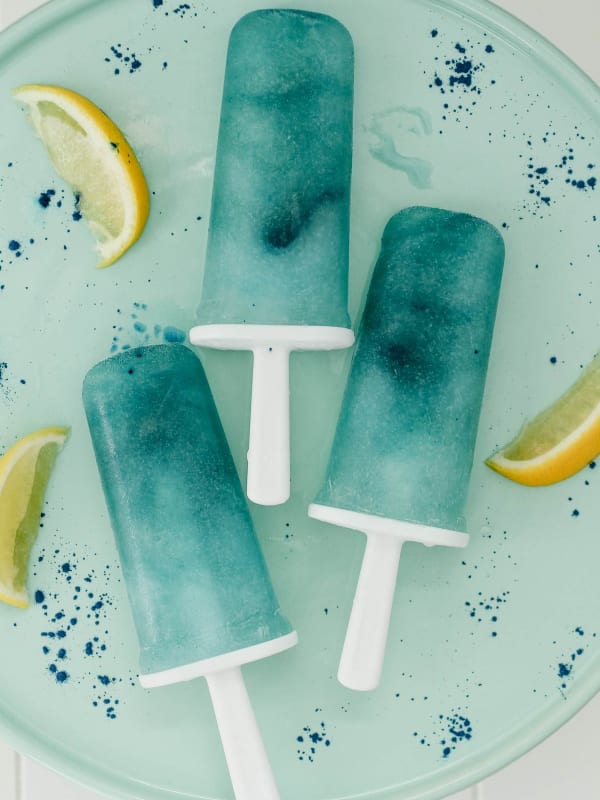
Practical Tips:
Water: Packing a water bottle for easy regular sips throughout the day is always an excellent policy.
Herbal Teas: Unsweetened herbal teas can be a hydrating alternative to water, providing both hydration and additional antioxidants.
Fruits and Vegetables: Foods with high water content, such as cucumbers, oranges, and watermelon, can make great snacks and contribute to overall hydration status.
Electrolytes: Sodium and potassium added to water make it more hydrating than water alone. Even a pinch of salt can go a long way in increasing cellular uptake of the water we drink.
Snack wisely
Blood sugar crashes are a surefire way to devastate concentration, mental energy, and mood, and snacking between meals can prevent them altogether. Just like balancing your meals, snacks should ideally include a mix of carbohydrates, protein, and healthy fats. Keeping a stash of healthy snacks in a backpack or locker can completely change the flow of the day.

Smart Snack Ideas:
Nuts and Seeds: Almonds, walnuts, cashews, macadamia nuts, sunflower and pumpkin seeds are rich in healthy fats, protein, and fibre, making them a great brain-boosting snack that travels conveniently.
Fruit with Nut Butter: Pairing an apple or banana with a tablespoon of almond or peanut butter provides a satisfying and nutrient-dense snack to relieve hunger and maintain mental energy.
Yogurt with Berries: We've already established the power of berries for student brains, and they can make a great standalone snack, but adding Greek yogurt offers a rounded balance of protein, carbohydrates, and antioxidants.
Limit sugary foods and avoid the crash
While sugary snacks and drinks might provide a quick energy boost, they are often followed by a rapid drop in blood sugar levels, leading to reduced motivation and brain fog. High added sugar intake is not good for the student brain and has actually been linked to impaired memory formation, depression, and difficulty concentrating. Sugar-sweetened beverages, in particular, have been directly implicated in compromising academic performance. There is even some evidence that fruit juice at breakfast has been linked to worse fluency and reading comprehension.
Allulose: The Revolutionary Healthy Sugar That Will Change Everything
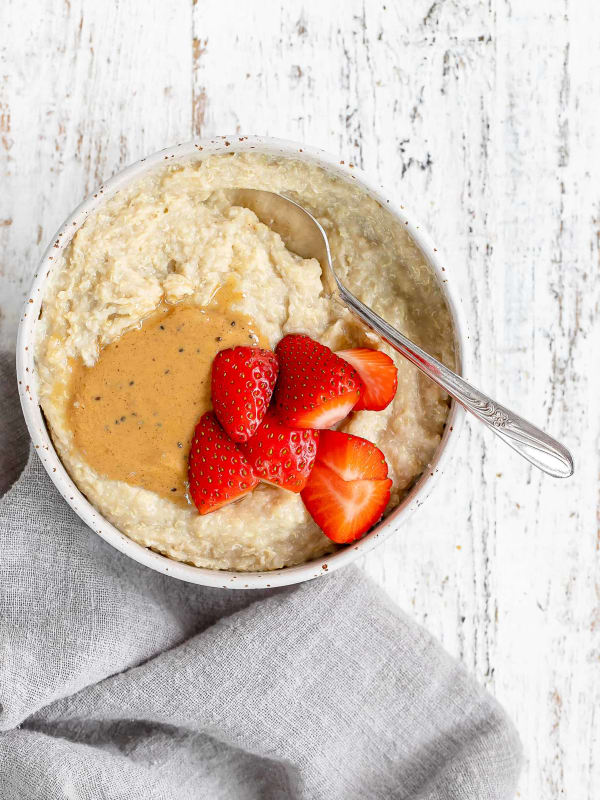
Better Alternatives:
Whole Fruits: Opt for whole fruits instead of fruit juices or sugary snacks. The water and fibre in whole fruits help slow the absorption of sugar, providing a more sustained energy release.
Complex Carbohydrates: Choose 'slow carbs' like brown rice, quinoa, oatmeal, and potatoes over refined carbohydrates to avoid blood sugar spikes.
Healthy Snacks and Balanced Meals: One of the worst things about sugary snacks is they displace healthy foods in the diet. On the other hand, if we fill up on balanced meals and plan ahead with brain-nourishing snacks, we'll be much less likely to crave sugar throughout the day.
Eat Smart
Any way you slice it, food plays a vital role in supporting students' cognitive function. Done right, it can go a long way in helping them stay focused, energized, and ready to learn. By incorporating nutrient-rich foods, staying hydrated, and making smart snack choices, students can seriously enhance their brainpower and set themselves up for academic success.
So, as the school year begins, consider this guide your back-to-school road map to a happier, healthier student brain.
47 Quick and Easy Back-to-School Lunches Your Whole Family Will Love
Adolphus, K., Lawton, C. L., & Dye, L. (2013). The effects of breakfast on behavior and academic performance in children and adolescents. Frontiers in human neuroscience, 7, 425. https://doi.org/10.3389/fnhum.2013.00425
Basak, S., Mallick, R., & Duttaroy, A. K. (2020). Maternal Docosahexaenoic Acid Status during Pregnancy and Its Impact on Infant Neurodevelopment. Nutrients, 12(12), 3615. https://doi.or g/10.3390/nu12123615
Beckman, T. (2024, June 5). Does sugar help or hurt your studying?. Brainscape Academy. https://www.brainscape.com/academy/does-sugar-help-with-studying/
Beurkens, N. N. (2021, December 7). How school food nutrition impacts student brain function. Nicole Beurkens. https://www.drbeurkens.com/how-school-food-impacts-student-brain-function/
Ede, G. (n.d.). The Brain Needs Animal Fat. Psychology Today. https://www.psychologytoday.com/ca/blog/diagnosis-diet/201903/the-brain-needs-animal-fat
Fayaz. (2021, August 9). How dehydration affects your brain - the Brain & Spine Institute of North Houston. Fayaz Neuro Surgery. https://fayazneurosurgery.com/how-dehydration-affects-your-brain/
Feeney, J., Finucane, C., Savva, G. M., Cronin, H., Beatty, S., Nolan, J. M., & Kenny, R. A. (2013). Low macular pigment optical density is associated with lower cognitive performance in a large, population-based sample of older adults. Neurobiology of aging, 34(11), 2449–2456. https://doi.org/10.1016/j.neurobiolaging.2013.05.007
Field, D. T., Williams, C. M., & Butler, L. T. (2011). Consumption of cocoa flavanols results in an acute improvement in visual and cognitive functions. Physiology & behavior, 103(3-4), 255–260. https://doi.org/10.1016/j.physbeh.2011.02.013
Foods linked to better brainpower. Harvard Health. (2024, April 3). https://www.health.harvard.edu/healthbeat/foods-linked-to-better-brainpower
Gómez-Pinilla F. (2008). Brain foods: the effects of nutrients on brain function. Nature reviews. Neuroscience, 9(7), 568–578. https://doi.org/10.1038/nrn2421
Healthy Breakfast: A “plus” For kids’ math performance, study shows. Healthy Breakfast: A “Plus” for Kids’ Math Performance, Study Shows : USDA ARS. (n.d.). https://www.ars.usda.gov/news-events/news/research-news/2013/healthy-breakfast-a-plus-for-kids-math-performance-study-shows/
Hoxworth, L. (2022, November 10). Brain Food: Exploring the connections between nutrition and learning. UVA Today. https://news.virginia.edu/content/brain-food-exploring-connections-between-nutrition-and-learning
Kubala, J. (2020, October 12). The top 9 brain foods for studying and exams. Healthline. https://www.healthline.com/nutrition/brain-food-for-studying#3.-Dark-chocolate-and-cocoa-products
Lane, K., Derbyshire, E., Li, W., & Brennan, C. (2014). Bioavailability and potential uses of vegetarian sources of omega-3 fatty acids: a review of the literature. Critical reviews in food science and nutrition, 54(5), 572–579. https://doi.org/10.1080/10408398.2011.596292
National University. (2018, April 9). Best Brain Foods for studying. National University. https://www.nu.edu/blog/best-brain-foods-for-studying/
Ptomey, L. T., Steger, F. L., Schubert, M. M., Lee, J., Willis, E. A., Sullivan, D. K., Szabo-Reed, A. N., Washburn, R. A., & Donnelly, J. E. (2016). Breakfast Intake and Composition Is Associated with Superior Academic Achievement in Elementary Schoolchildren. Journal of the American College of Nutrition, 35(4), 326–333. https://doi.org/10.1080/07315724.2015.1048381
Ren, Y., Peng, C., Li, Y., Zhou, F., Yang, M., Xiang, B., Hao, L., Yang, X., & Zeng, J. (2022). The Association between Sugar-Sweetened Beverages and High-Energy Diets and Academic Performance in Junior School Students. Nutrients, 14(17), 3577. https://doi.org/10.3390/nu14173577
ScienceDaily. (2024, February 15). Protein-rich breakfast boosts satiety and concentration. ScienceDaily. https://www.sciencedaily.com/releases/2024/02/240215113604.htm
Selhub, E. (2022, September 18). Nutritional psychiatry: Your brain on food. Harvard Health. https://www.health.harvard.edu/blog/nutritional-psychiatry-your-brain-on-food-201511168626
Stevens, L., & McQuillan, S. (2024, May 21). Best breakfast with kids: The ADHD benefits are real - and delicious. ADDitude. https://www.additudemag.com/high-protein-breakfast-foods-for-adhd/
Travica, N., D'Cunha, N. M., Naumovski, N., Kent, K., Mellor, D. D., Firth, J., Georgousopoulou, E. N., Dean, O. M., Loughman, A., Jacka, F., & Marx, W. (2020). The effect of blueberry interventions on cognitive performance and mood: A systematic review of randomized controlled trials. Brain, behavior, and immunity, 85, 96–105. https://doi.org/10.1016/j.bbi.2019.04.001
Whyte, A. R., Cheng, N., Butler, L. T., Lamport, D. J., & Williams, C. M. (2019). Flavonoid-Rich Mixed Berries Maintain and Improve Cognitive Function Over a 6 h Period in Young Healthy Adults. Nutrients, 11(11), 2685. https://doi.org/10.3390/nu11112685





